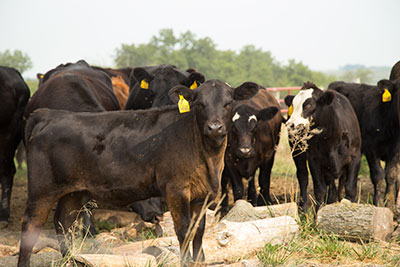Numerous anomalies identified in the cattle futures market and R-CALF suspects packers were making trades in the futures market to drive cash cattle prices downward.

The Commodity Futures Trading Commission (CFTC) has been asked to investigate packer trading activities on specific dates spanning the past six years. R-CALF USA stated it identified numerous anomalies in the cattle futures market and suspects packers were making trades in the futures market to drive cash cattle prices downward.
R-CALF USA made the request as a follow-up to previous requests made by the industry in previous years. The Governmental Accountability Office did release an evaluation earlier this year and reviewed work that the Chicago Mercantile Exchange and CFTC had done in the futures market and “did not find evidence of trading irregularities in the cattle futures market in 2015.”
However, Bill Bullard, R-CALF chief executive officer, said there was a particular incident this year in late April and early May when the futures market led cash prices down hard. “As wholesale prices were strengthening, and cash fed cattle prices were chasing them upwards, an inexplicable break in the futures market caused those prices to collapse," Bullard said.
The group's research shows several breaks in the futures market during each of the years it analyzed from 2013 to 2018. R-CALF USA calls those breaks anomalies because they occurred when cash fed prices were trending upward in response to higher wholesale beef prices.
“We began looking at specific dates when anomalies occurred since 2013. We do not know if the CFTC looked at these specific dates in its prior reviews,” Bullard said.
The CFTC request for review states, “We request an investigation to determine if the packers, or a person or fund representing the packers' interests, were responsible for the trades that drove the futures market downward" on each of the specific dates the group identified as anomalous futures market trades.
R-CALF stated in 2015 and beyond, when cattle supplies increased, those same anomalous trades reaped “huge financial rewards for the packers because with more plentiful supplies, the packers shifted from competing against each other to cooperating with each other to drive cattle prices lower.”
Bullard stated the multi-year chart reveals that after Dec. 21, 2015, which date coincides with the end of enforcement of the U.S. country of origin labeling law for beef, wholesale beef prices shifted substantially upward and both cash and futures prices shifted substantially downward.
"In other words, after Dec. 21, packers began capturing the largest gross margins in history while cattle producers continued receiving depressed prices for their cattle. This explains why packer margins are now well over $300 per head.
"This is alarming and clear evidence our marketplace is broken. We hope the CFTC can uncover who is to blame for our dysfunctional markets," concluded Bullard.
About the Author(s)
You May Also Like


.png?width=300&auto=webp&quality=80&disable=upscale)
.png?width=300&auto=webp&quality=80&disable=upscale)

